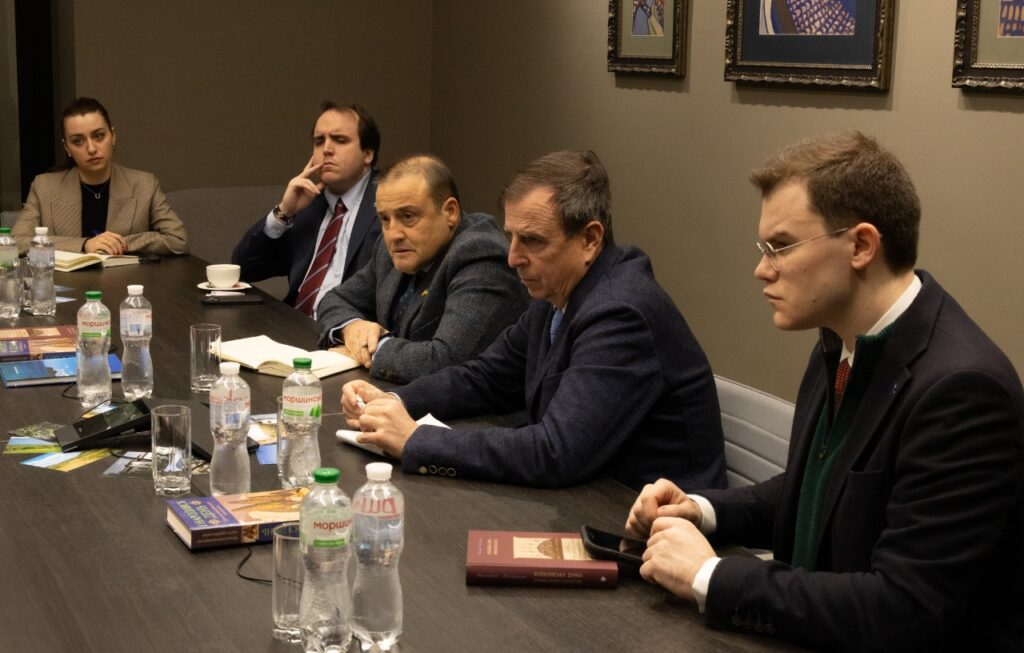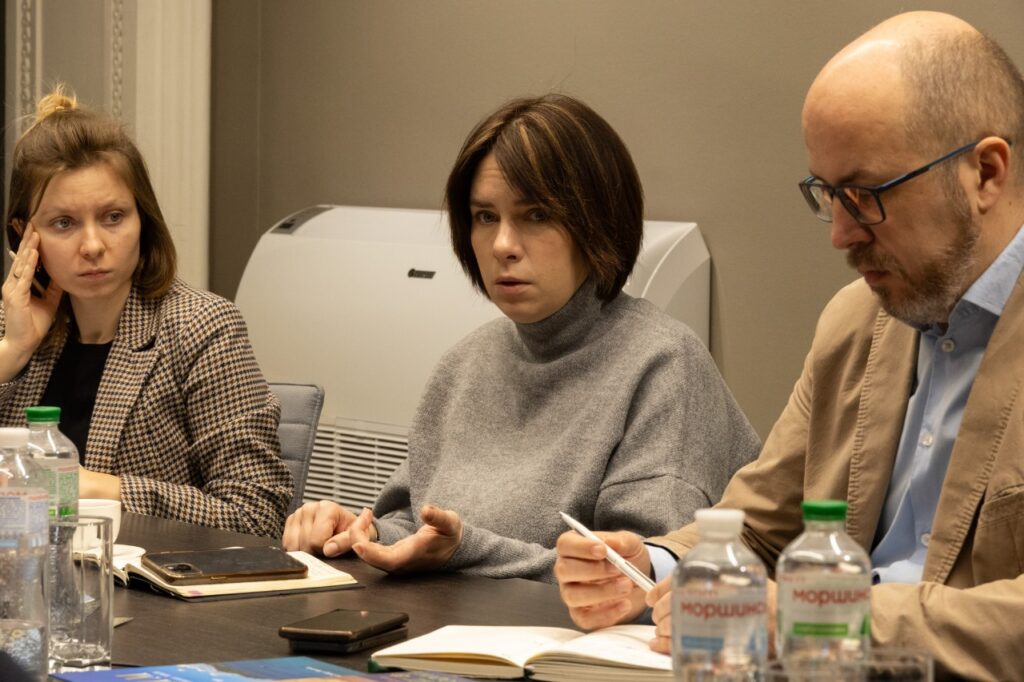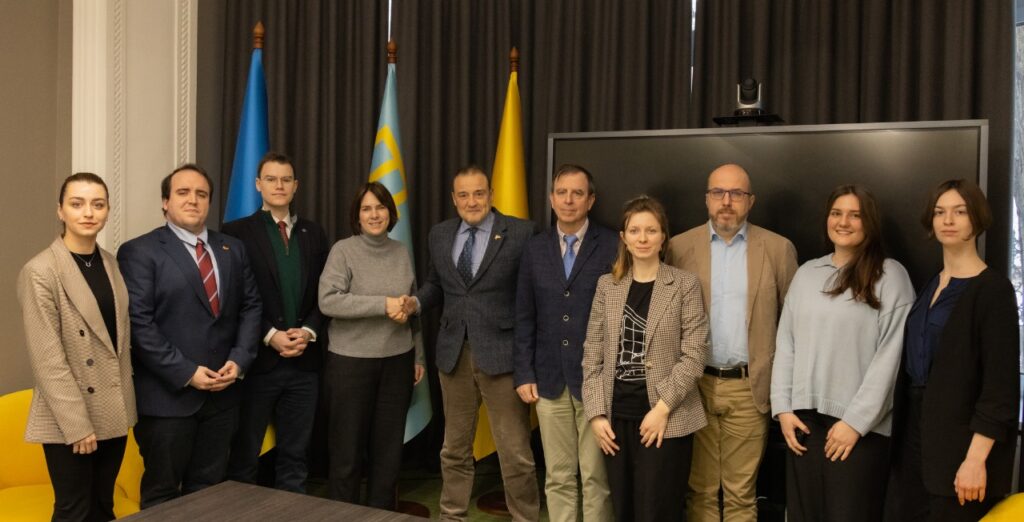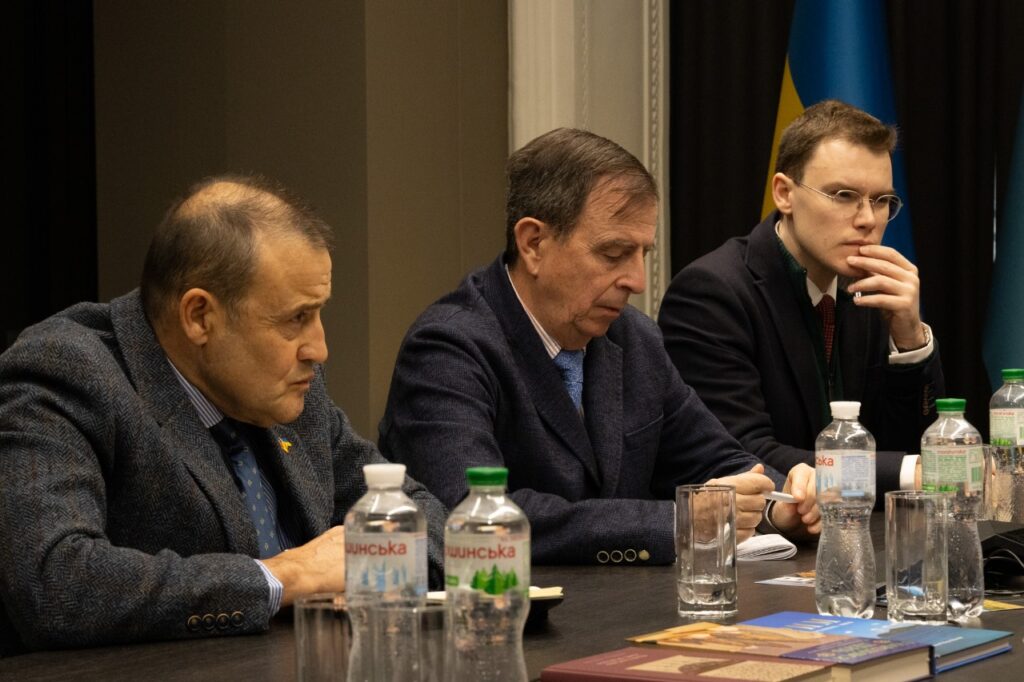On February 7th, the Permanent Representative of the President of Ukraine in the Autonomous Republic of Crimea, Olha Kuryshko, met with Spanish security and strategy experts to discuss the situation in temporarily occupied Crimea, Ukraine’s strategy for its de-occupation and reintegration, and the systematic human rights violations perpetrated by the Russian occupation authorities.
This visit was organized with the support of the European Union and the International Renaissance Foundation as part of the joint initiative European Renaissance of Ukraine.


The meeting was attended by key representatives from both Ukraine and Spain, including Deputy Permanent Representative Denys Chystikov, Head of the Crimean Platform Support Service Anna Sytnikova, and notable Spanish experts such as Victor Mario Bados Nieto, Director of the Spanish Institute for Strategic Studies (IEEE), Ignacio Fuente Cobo, Senior Analyst at IEEE, Manuel José Gazapo Lapayese, Director of Institutional Relations at UNIVERSAE and Director of the International Security Observatory, and Amín Lejarza de Bilbao Essalhi, Head of the Youth Section of Eurodefense Spain, and Alina Rohach, the TDC representative.
During the discussion, Olha Kuryshko provided an overview of the Mission’s activities, highlighting its ongoing efforts to prepare for Crimea’s reintegration into Ukraine. She outlined the key priorities of the Ukrainian state following de-occupation, including the restoration of legitimate Ukrainian governance, the establishment of a trained personnel reserve for administrative functions, and the resolution of legal complexities related to documents issued under the occupation regime. Olha Kuryshko stressed that these steps are crucial for ensuring institutional, legal, and social stability in Crimea once it is restored to Ukrainian control.
A significant part of the meeting was dedicated to addressing the escalating human rights abuses in the occupied territory. Olha Kuryshko underscored the alarming scale of repression used by Russian occupation authorities, stating that as of February 3, 2025, at least 218 Ukrainian citizens—132 of whom are Crimean Tatars—remain unlawfully detained. These individuals face fabricated charges of “terrorism,” “extremism,” and “treason,” tactics employed to intimidate and suppress any form of resistance against the occupation. Further illustrating the scale of Russian oppression, Anna Sytnikova noted that the occupation regime employs not only criminal prosecution but also administrative penalties to silence dissent.
In addition to legal persecution, Olha Kuryshko addressed the demographic transformation Russia has imposed on the region since the 2014 occupation. Until 2014, Crimea was home to approximately two million people. Since then, large numbers of Ukrainians and Crimean Tatars have been forced to flee due to persecution, while Russia has illegally resettled more than a million of its own citizens onto the peninsula. This calculated policy of colonization is not merely illegal migration—it is a systematic attempt to erase Crimea’s Ukrainian identity and solidify Russian control.



The Spanish delegation expressed deep concern over these developments and demonstrated a strong interest in understanding Ukraine’s plans for de-occupation. The discussions included strategies to counter Russian disinformation, address the humanitarian situation, and navigate the challenges associated with reintegrating Crimea. The Spanish representatives reaffirmed their country’s support for Ukraine and its sovereignty over Crimea, emphasizing that the international community must remain engaged in holding Russia accountable for its violations of international law.